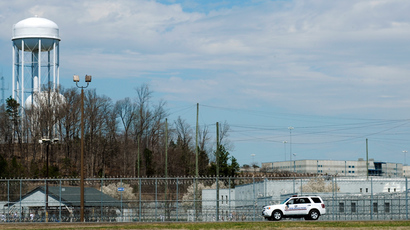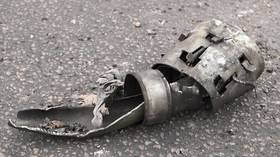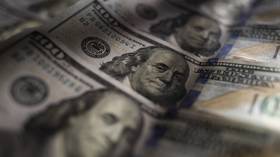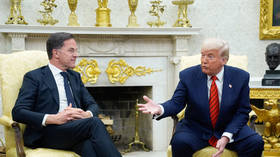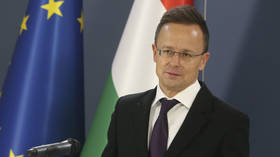'Overworked & over-medicated: US ranks as third most depressed nation'
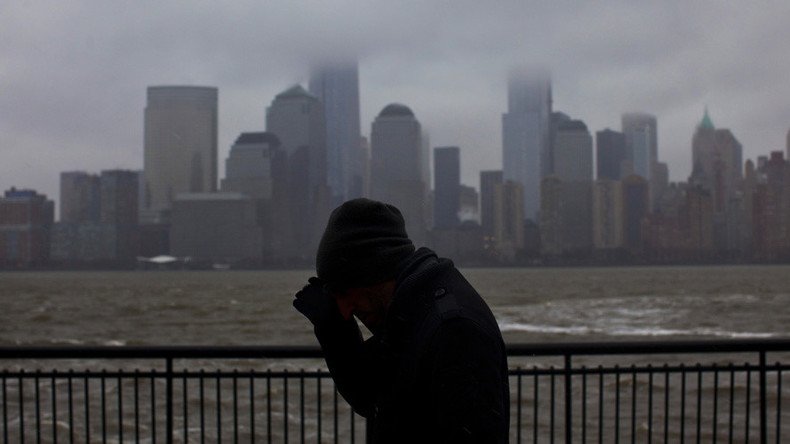
Americans are overworked, spending an average of 8-9 hours a day on the job, while looking for quick fixes and medications instead of long-term solutions to solve their problems, Dr. Lisa Palmer, Psychotherapist at the Renew Center of Florida, told RT
The World Health Organization [WHO] released its new list of the world’s most depressed countries. The US comes in third after India and China. Unipolar depressions, anxiety, drug and alcohol abuse are the root causes of this, according to a large number of experts.
RT: How can such grim statistics be possible in the most powerful and the richest nation the world has ever seen?
Dr. Lisa Palmer: We definitely do have a mental health crisis in America. You know, 15 million Americans are affected by depression; 60 per cent of them are actually taking antidepressants, and believe it or not suicide is the tenth-leading cause of death in America. So it is a very serious issue – I agree with that.
RT: According to the WHO, India, China and the US are also the countries most affected by anxieties, schizophrenia, and bipolar disorder. It’s hard to imagine in places like Iran, Pakistan, or Indonesia are many people reporting mental health issues, or seeking the help of therapist? Do you think these numbers are skewed?
Dr. LP: That’s definitely true. There is a mental health stigma. I think that more people in America are prone to report or get help, so the numbers may be skewed that way for sure. But also there is that pressure in America to achieve the ‘American dream’. People have a hard time with that – work life balance, peace, skillful thinking, skillful living, a sense of loneliness and isolation is very much prevalent, very much because of the independent nature of our culture, as well, which is affecting people in their depression.
RT: The US also has a huge military, the largest in the world along with 15 years of war in the Middle East. Many of them are depressed when they come back home and statistics show that 22 veterans kill themselves each day. Do you think those elements factor into the depression?
Dr. LP: Absolutely, you raised such a great point, because PTSD [Post-traumatic stress disorder] is prevalent, and by the way, post-traumatic stress symptoms have very much of a stigma and that needs to be changed because post-traumatic stress symptoms are actually normal symptoms that result when you’re in a painful experience, when you’re in that fight or flight response. So part of a good therapeutic regimen is to reverse that normal response that happened to help people to better function on a daily basis without having to turn to medications as a way to cope, because these medications, which are often put and prescribed to people provide temporary relief, but not long-term solutions.
RT: You mentioned earlier how the American lifestyle, the push to be better, to make more money, to work more hours. How does this play out in the long run, if people don’t change that kind of lifestyle as an American societal norm?
Dr. LP: It is a really hard thing to do. If you think about it, we’re really overworked. Americans are working an average of 8-9 hours a day. The Swedes, for instance, work about 6 hours a day so they are making time for rest. It is something that we have to work on as Americans – that when we do have that time, how to best utilize that time for ourselves; to take care of ourselves; to take care of our health; and to prioritize and focus and work on our positive belief systems and things like that and not just turn to quick fixes and medications to help us sleep and to help us cope. Giving people education that are better and more effective ways of doing this in relieving emotional symptoms that are toxic for us and keeping us stuck. I think education is the key and I am hoping that our future President can focus on that and put funding toward mental health care, because it is so much needed in our country.
RT: What is your advice to make America happier? How does each person start being a little happier?
Dr. LP: Obviously happiness comes from within. We have to focus on evaluating ourselves, and sometimes that means slowing down to take a really good hard look at ourselves and our lives to see what needs to be changed first. Once we do that, then we can take the next steps, which maybe finding the right help that we need to relieve symptoms that for the long-term benefit, not just taking a medication that’s going to provide us temporary relief and trying to look at some more holistic ways of doing this, which are very beneficial. I do see a lot of my patients’ symptoms are being reduced even without medication, but because of proper therapy. I think we have to do that, and take time to enjoy ourselves in a healthy way: not turn to alcohol, drugs, or negative recreational activities, but try to focus on the positive things that are going to bring us health and happiness.
The statements, views and opinions expressed in this column are solely those of the author and do not necessarily represent those of RT.
